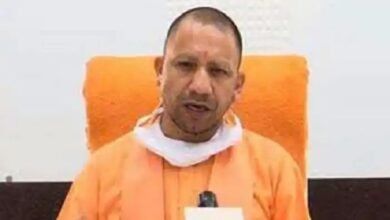[ad_1]
Last Updated: December 11, 2023, 12:41 IST

Writing the judgement for himself and Justices Gavai and Surya Kant, Chief Justice of India DY Chandrachud said Article 370 of the Constitution was a temporary provision and the president has the power to revoke it. (PTI)
The CJI, while reading the verdict, said the erstwhile state of Jammu and Kashmir did not retain an element of sovereignty when it joined the Union of India
The Supreme Court on Monday upheld the government’s decision to abrogate Article 370, which bestowed special status on the erstwhile state of Jammu and Kashmir, and said steps should be taken to conduct elections in the assembly by September 30 next year.
Writing the judgement for himself and Justices Gavai and Surya Kant, Chief Justice of India DY Chandrachud said Article 370 of the Constitution was a temporary provision and the president has the power to revoke it.
The apex court also upheld the validity of the decision to carve out the union territory of Ladakh from Jammu and Kashmir in August 2019.
Here are the top 10 takeaways from the verdict:
• The CJI, while reading the verdict, said the erstwhile state of Jammu and Kashmir did not retain an element of sovereignty when it joined the Union of India. “The Preamble of the Constitution of Jammu and Kashmir, Sections 3, 5 and 147 of the State Constitution, coupled with Article 1 of the Constitution of India read with the First Schedule as well as Article 370 indicate in no uncertain terms that a system of subordination (as understood by the definition of sovereignty) exists by which the State is subordinate to the Indian Constitution first and only then to its own Constitution.”
• Upholding the status of Ladakh as a Union Territory, the court said: “The status of Ladakh as a Union Territory is upheld because Article 3(a) read with Explanation I permits forming a Union Territory by separation of a territory from any State.”
• The court, while calling for elections, said steps must be taken by the Election Commission to conduct elections of Jammu and Kashmir Assembly by September 30, 2024, adding that restoration of statehood would happen as soon as possible.
• Justice Sanjay Kishan Kaul, while reading his judgment, said Article 370 was to bring J&K at par with other states. “The men, women and children of the state have paid a heavy price. The wounds need healing and restoration of social fabric of the region.”
• The Supreme Court also refused to go into the validity of presidential rule imposed in J&K, with the CJI saying: “Every decision of the Centre taken for the State post imposition of Presidential Rule can’t lead to a legal challenge, the same can cause chaos.”
• Reading out the judgment, CJI said that the petitioners’ contention that Centre cannot take any decision during proclamation under Article 356 is not acceptable.
• The CJI made it clear that Article 370 was a temporary provision “on a reading of the historical context in which it was included”. “It served the transitional purpose to provide for an interim arrangement, till the J&K Constituent Assembly could be formed and it could ratify the Indian Constitution. Second, it served a purpose in the war-like situation prevailing in the state,” the Chief Justice said.
• This is a unanimous verdict by a five-judge bench which has written three judgments.
• CJI Chandrachud also said there is no mala fide in the exercise of power under Article 370(3) by the President of India to issue the August 2019 presidential order. “We hold the president seeking concurrence of union and not state is valid, all provisions of Indian constitution can be applied to J-K, the CJI said.”
• Justice Sanjiv Khanna said Article 370 is an example of asymmetric federalism and not indicative of the sovereignty of J&K. The abrogation of Article 370 does not erode federalism, he added.



